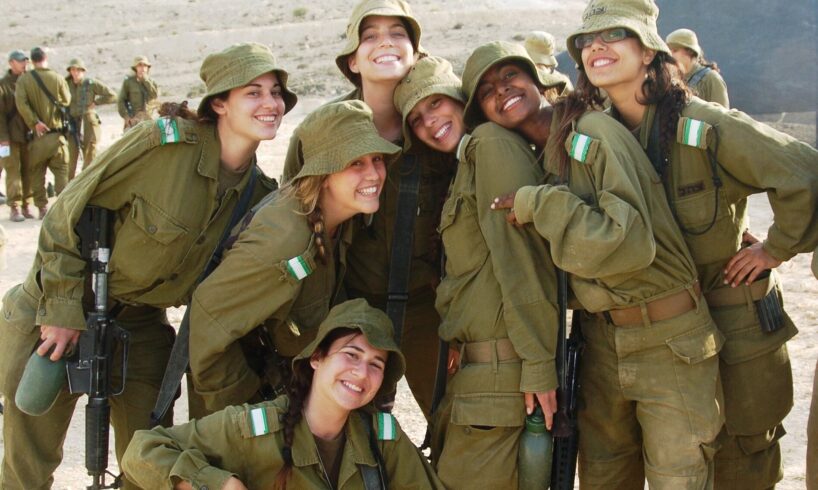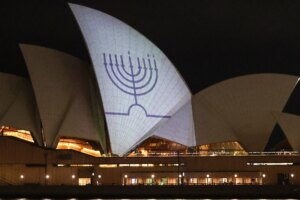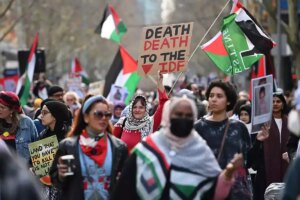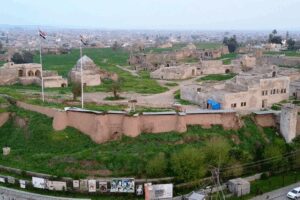
They gathered me around the patio table — four faces I’d trusted for years, some since the first week of college. One by one, they spoke. They told me that joining the IDF would mean crossing a “moral line,” that it would make me complicit in “genocide,” and that if I went through with it, I would lose them.
These weren’t casual acquaintances; they were the people I’d imagined raising children beside, the friends I pictured sitting next to at each other’s weddings, still laughing decades from now. Yet that afternoon, each of them made it clear: They could not stand by me if I defended the only Jewish state. Then came the ultimatum — our friendship, or the IDF.
I chose, and will always choose, to stand with the Jewish people.
My loyalty isn’t blind. I’ve been outspoken about Netanyahu’s failures; I believe this war has dragged on at devastating cost to both Palestinians and Israelis, and that his government has failed the hostages and their families. I know I am entering an army under his command, and the choice is not easy. But without the IDF, there might be no Israel — and without Israel, perhaps no foothold for democracy in this world at all. To watch civilization splinter and stay silent would betray everything I value.
What kind of world are we living in when the people closest to you walk away the moment disagreement becomes uncomfortable? My best friends, the ones who shaped my college life, decided they could not stand beside me as I made this choice. I am devastated, not only by their loss but by what it reveals about the fragility of our culture. When we lose the ability to love one another across differences, when “agree to disagree” stops being possible, the very fabric of society begins to fray. Friendships shouldn’t vanish like smoke the moment we reach a moral crossroads.
Read more: Aliyah explained: How Jewish immigration built modern Israel
Before I could even defend my choice, I thought about where my conviction came from. Between my junior and senior years of college, I spent 10 months in Israel, from 2023 to 2024. I taught English to Israeli Arab children and worked on a kibbutz alongside people with disabilities. I was in Jerusalem on October 7, and I chose to stay in Israel rather than return to the United States. I watched Israelis rally together — resilient, strong, and united — while, from afar, I saw the West descend into violent chaos. Even before I returned home, friends had already begun to ghost me, slipping out of my life without a word. Some went further, calling me a Nazi, saying that if I had been murdered, raped, or kidnapped on October 7, they would have accepted it in the name of “resistance.”
Since October 7, since the brutal murder of over 1,200 innocent Israeli citizens, I’ve time and time again lost friends for standing proudly and unapologetically as a Jew. Before this “intervention” from my so-called closest friends, there were many others who walked away without a word, unfollowed me on social media, and gave me dirty looks when I walked by. But this moment was different. This time, they weren’t just fading away; they were choosing to leave. And I was choosing a path they couldn’t follow.
For months afterward, I woke from nightmares of being hunted, carrying the night terrors’ residue into the daylight. Even sitting in class felt risky. And still, I spoke up for Israel, knowing it could cost me every friendship I had left.
And I know I’m not alone. Across the world, Jews are losing friends, colleagues, and even family members simply for defending our right to exist. People who once celebrated birthdays together, studied side by side, and supported each other through heartbreaks and milestones are watching those ties evaporate the moment they voice solidarity with Israel. It’s not just a personal heartbreak; it’s a sign of something deeper. We are living in a culture that treats friendship as conditional on perfect political alignment, and disagreement as a threat rather than an invitation to understand.
What does it say about us that bonds forged over years can dissolve in an instant? That loyalty has become so fragile, and moral seriousness so brittle, that the cost of standing with one’s people can mean exile from one’s chosen family? The erosion of trust between friends mirrors the erosion of trust in our society itself. If we cannot hold space for one another’s deepest convictions, if we cannot love across differences, then we risk losing not just friendships, but the very possibility of a shared moral and civic life.
I speak especially to those on the Left, because I once counted myself among you. I believed in your promise: freedom of thought, respect for those unlike ourselves, and a commitment to open debate. But that spirit has curdled. A movement that once championed liberal values has become illiberal, punishing dissent, rewarding conformity, and narrowing the range of acceptable voices. The very community that once urged tolerance has closed its ranks against anyone who breaks from the approved script, even those who share its historic commitments to justice and human dignity. Our culture is growing narrow, brittle, hypocritical, and unable to extend to others the generosity it claims as its core.
And so this is the story of what happened with my closest friends. They could not hold two truths at once. I kept asking myself: Did I leave them, or did they leave me? Eventually, the answer was clear. The moment they drew their “moral line” was the moment they walked away. I am still on my journey, trying to carve out a life shaped by the change I want to see in the world. And there they remain, far from war, connected to this conflict only through headlines — yet certain of what I should or should not do.
Jews are not vengeful people. We do not seek revenge; we seek peace, safety, and a place among the nations. Our tradition teaches us to step into the world with questions, with open minds, and with the courage to wrestle with complexity. That same spirit is what our fractured world needs most right now. We must relearn how to hold nuance, how to let curiosity temper outrage, and how to act with love even in disagreement. Only by reclaiming that generosity of spirit can we mend what has been torn and build a future where friendship, empathy, and truth prove stronger than fear.





